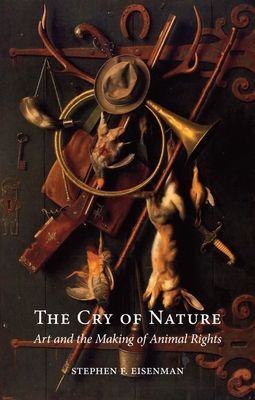
The Cry of Nature Art and the Making of Animal Rights
The eighteenth century saw the rise of new and more sympathetic understanding of animals as philosophy, literature, and art argued that animals could feel and therefore possess inalienable rights. This idea gave birth to a diverse movement that affects how we understand our relationship to the natural world. The Cry of Nature details a crucial period in the history of this movement, revealing the significant role art played in the growth of animal rights. Stephen F. Eisenman shows how artists from William Hogarth to Pablo Picasso and Sue Coe have represented the suffering, chastisement, and execution of animals. These artists, he demonstrates, illustrate the lessons of Montaigne, Rousseau, Darwin, Freud, and others—that humans and animals share an evolutionary heritage of sentience, intelligence, and empathy, and thus animals deserve equal access to the domain of moral right. Eisenman also traces the roots of speciesism to the classical world and describes the social role of animals in the demand for emancipation. Instructive, challenging, and always engaging, The Cry of Nature is a book for anyone interested in animal rights, art history, and the history of ideas.